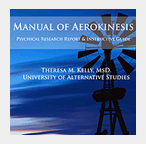Aerokinesis
Parapsychology Articles, Papers and Books
Home > Articles > Psychic Phenomena > Psychokinesis > Aerokinesis
![]()
|
| NEWSLETTERS |
| Get the best from QPsychics.com in your inbox! |
|
| PARAPSYCHOLOGY ORGANIZATIONS |
"With confidence in the importance of utilizing the investigative mode of the established sciences in order to inquire into the authenticity and to potentially explain the nature of psychical phenomena."  |
 |
 |
 |
 |
Forms of Wind Measurement
Aerokinesis is the psychical influence of flow in regards to elemental gases such as oxygen, hydrogen, carbon, and nitrogen. It includes the influence of flow in regards to gas mixtures in which each element of gas retains its own chemical properties and makeup. For instance, air is a homogeneous mixture of the gaseous substances nitrogen, oxygen, and smaller amounts of other substances. Outdoor winds are caused by differences in pressure. When a difference in pressure exists, the air is accelerated from higher to lower pressure. Because of this, experients should be encouraged to exercise flow-based exercises, in regards to the outdoors, in the opposing direction of typical wind gust origination. Appropriate directions are typically based on prevailing winds. Typically, experients in the United States should face southwest, experients in the United Kingdom should face east, and experients in Canada should face northeast. As these directions are only typical, experients should base their direction on prevailing winds in the specific location. Wind gusts created close to the ground (semi-localized or localized) are recommended as wind gusts in the higher atmosphere can result in destructive atmospheric effects especially during the warmer seasons. Wind gusts are short bursts of high-speed wind typically from 1 (calm) to 10 (gentle breeze) knots. For measurement, experients should obtain an anemometer. An anemometer is a device for measuring wind speed and can be divided into two classes: those that measure wind velocity, and those that measure wind pressure. For outdoor wind-based exercises, an anemometer that measures wind velocity is required. Anemometers range in type, size, and price, but can be very affordable.
(Adapted from the paper “ Manual of Aerokinesis: Applications, Experimentation, and Measurement ” by Theresa M. Kelly, MsD.)
| |||
Related Articles |
|||

